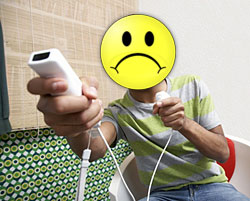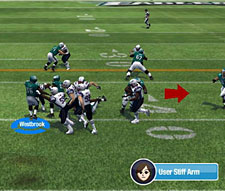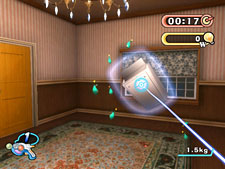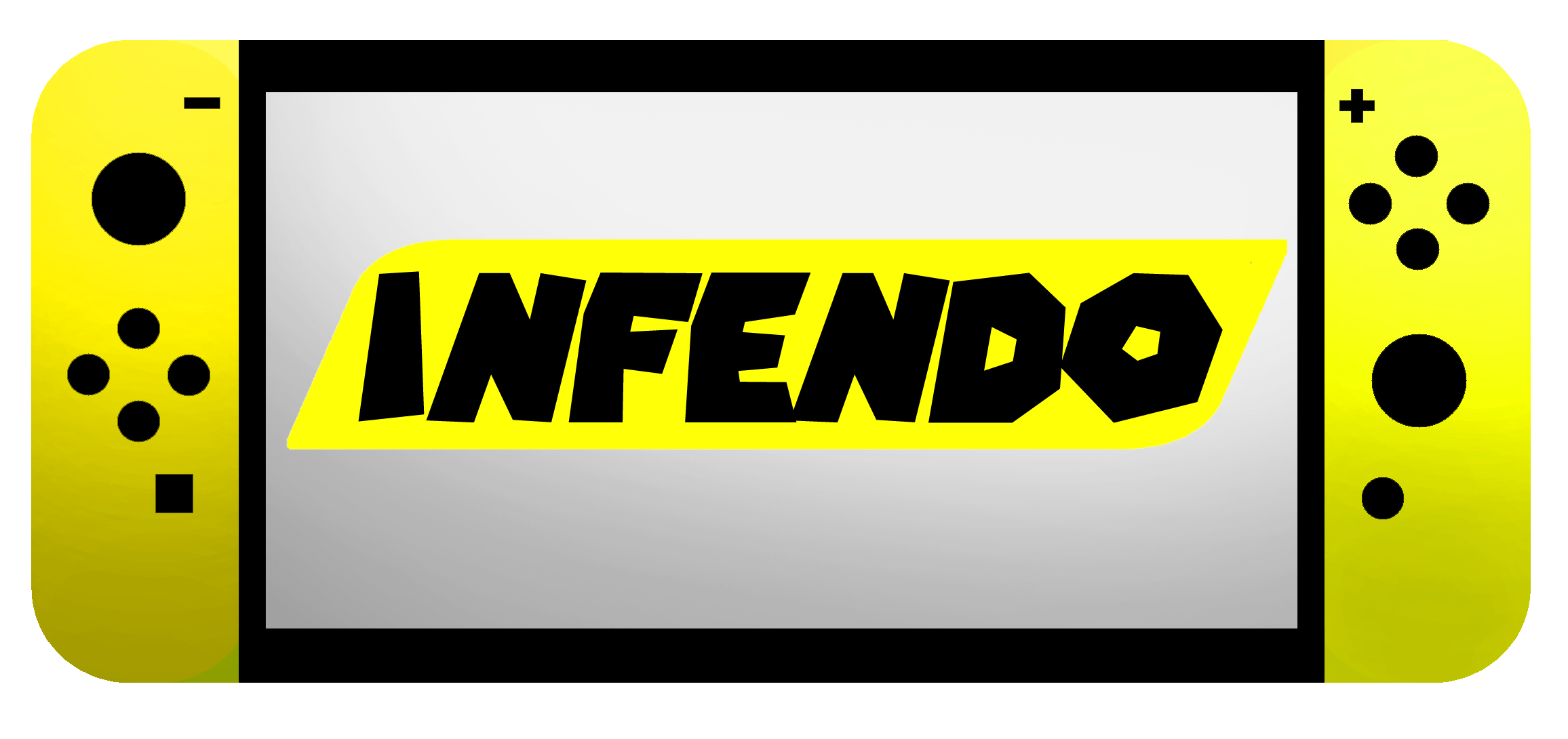 Since the beginning of Sony’s now-fading dominance of the video game industry more than a decade ago, third-party publishers have consistently treated Nintendo consoles as Hyrulians do the scorching sands of the Gerudo Desert.
Since the beginning of Sony’s now-fading dominance of the video game industry more than a decade ago, third-party publishers have consistently treated Nintendo consoles as Hyrulians do the scorching sands of the Gerudo Desert.
They avoid them altogether.
This unfortunate trend began with the Nintendo 64, when a series of controversial decisions made by Nintendo prompted many developers to shift support to competing consoles. For the first time since the emergence of the home console business, a Nintendo platform was not the dominate one, and the inevitable exodus of third-parties led to devastating consequences for Nintendo.
Most consequential were the increasingly frequent software droughts that left Nintendo fans and their three-pronged Nintendo 64 controllers idle, parched by excruciating voids of quality software. This would have been difficult enough, but the migration of hit titles away from the Nintendo 64 made a bad situation only more difficult for Nintendo supporters.
Square had originally planned its epic Final Fantasy VII – widely considered one of the finest games ever made – for the Nintendo 64, but moved it to Sony’s new PlayStation before development began. Prominent companies such as Konami and Capcom also dramatically scaled back support for the Nintendo 64, shifting the bulk of their support to Sony and leaving Nintendo alone to support its console, a pattern which would continue on the GameCube despite Nintendo’s best efforts.
But with Wii, things were supposed to be different. Consumers were promised, due to the affordability of Wii software development and the unique options for interface and control encouraged by the hardware, that third-parties would provide substantially more software for Nintendo fans.
Certainly, it could be argued that the promise of “more” has been kept. More than 20 games launched with the Wii in North America, and only three of them were developed by Nintendo. Almost a year later, third-parties are still churning out Wii games at a surprising rate, and many companies have created dedicated teams specifically for Wii software development.
While third-parties have been successful in getting more of their games on the shelf, however, they have failed to get those games into the hands of Nintendo fans.
 The recently released Madden NFL 2008 exemplifies this phenomenon. The multi-platform football game, published by third-party behemoth Electronic Arts, sold a staggering 896,600 copies on the Xbox 360 in August, according to NPD sales data. The PlayStation 2 version sold 643,600 copies in the same month, and even the struggling PlayStation 3 managed a respectable 336,200 units sold.
The recently released Madden NFL 2008 exemplifies this phenomenon. The multi-platform football game, published by third-party behemoth Electronic Arts, sold a staggering 896,600 copies on the Xbox 360 in August, according to NPD sales data. The PlayStation 2 version sold 643,600 copies in the same month, and even the struggling PlayStation 3 managed a respectable 336,200 units sold.
The Wii version sold little more than 100,000 copies.
Third-party difficulties on Wii are perhaps even more clearly illustrated in examination of the console’s best-selling software. According to VGChartz.com, a Web site dedicated to tracking video game sales figures, eight Wii titles have sold more than one million copies worldwide to date. Only two, Ubisoft’s Rayman Raving Rabbids and Red Steel, were developed by a company other than Nintendo.
Speculation varies on the reasons behind third-party sales difficulties on Wii, but many share a bold theory: their games simply aren’t worth buying.
In an interview with Newsweek’s N’Gai Croal in March, Nintendo development guru Shigeru Miyamoto expressed concerns that third-party developers are not committing their best efforts to software intended for Nintendo systems.
When questioned about third-party struggles on Wii, Miyamoto said “…a lot of times, it seems that when (third-parties) are putting games out on Nintendo hardware, those games are being developed by their third-string team or their fourth-string team.”
“But when Nintendo puts out a title,” continued Miyamoto, “that title is always developed by one of our number one teams.”
Though Miyamoto garnered some criticism for his comments, he pointed out a simple truth: Nintendo puts its best teams behind first-party Wii software. Most Nintendo games on Wii – think Legend of Zelda: Twilight Princess, Metroid Prime 3: Corruption and Super Paper Mario – emphasize his point. These titles have achieved not only universal critical acclaim, but healthy sales figures and overwhelmingly positive reception from Wii owners.
Finding a third-party Wii game of comparable quality, polish and customer satisfaction can be a daunting task.
According to many third-parties, however, their development efforts are not to blame for their low sales on Wii. Rather, the problem lies with the Nintendo audience. Interview snippets and developer commentaries occasionally reveal that third-parties feel slighted by Nintendo supporters, and interestingly, journalists often sympathize, effectively portraying third-parties as the “victim,” a label they so frequently pine for.
Kevin Cassidy, founder of the popular Nintendo news blog GoNintendo.com, claimed in March that “when it comes to third-party games, Nintendo fans are almost impossible to please” and that they “turn their backs” on third-party software.
Two months prior to the release of the Wii, Game Informer’s Billy Berghammer justified third-parties’ avoidance of Nintendo platforms, claiming “the industry (has) witnessed Nintendo fans only really purchasing Nintendo titles.”
 Researchers also place blame on Nintendo fans. In April, an analyst with Kaufman Bros. Equity Research suggested that Nintendo’s expansion of the video game market in recent years has actually had a negative effect on third-parties, suggesting that Nintendo is “leaving the publishers with a smaller slice of an only somewhat incrementally larger pie” and keeping them “in a permanent catch-up mode.”
Researchers also place blame on Nintendo fans. In April, an analyst with Kaufman Bros. Equity Research suggested that Nintendo’s expansion of the video game market in recent years has actually had a negative effect on third-parties, suggesting that Nintendo is “leaving the publishers with a smaller slice of an only somewhat incrementally larger pie” and keeping them “in a permanent catch-up mode.”
There are two distinct sides to this debate: the third-party developers who feel their work is unfairly ignored, and the Nintendo audience who feels their work deserves the cold-shoulder. While both sides offer reasonable arguments, a simple truth can be uncovered in honest analysis of third-party Wii software and its sales:
Most third-parties simply are not “getting” what the console is about, and on the rare occasion that they do, Nintendo fans are not embracing those titles as they should.
One issue most Nintendo supporters and game critics seem to agree on is that Ubisoft deserves the distinction of the number-one offender of awful Wii games. Since their much-hyped Red Steel succeeded in becoming one of the most disappointing games of the last decade, Ubisoft has continued releasing forgettable software on Wii. They plastered a Teen-rated facade over the conclusion of their Prince of Persia trilogy, The Two Thrones, and tacked-on motion controls for their renamed port, Rival Swords. Instead of correcting its missteps, Ubisoft continued to pollute the Wii with “shovel-ware” like Driver: Parallel Lines and the abysmal Far Cry Vengeance.
If Ubisoft deserves commendation for anything it has done on Wii, it is the consistency with which it disappoints.
While it seems like Electronic Arts has at least put some creative effort into their Wii software, as evident in games like Boogie and their Madden titles, their games have failed to entice the majority of Wii owners. Boogie, in particular, fell victim to extremely harsh reviews – Jenn Frank of 1up.com called it a “jack-of-all-trades, master-of-none moment of fluff” that is “fun for exactly 20 minutes” – and disappointing sales.
Things haven’t faired well for Eidos on Wii, either. Cheat Code Central claimed their universally-maligned Escape From Bug Island “set a new low point for…video games,” and their shooter Bionicle Heroes was also a critical and sales bomb.
And what of Activision? Hudson? Sega? None of these companies have been able to captivate the Wii audience as a whole, and the majority of their software has been poorly received by critics and gamers alike.
While perceptions of video games are subjective, it is difficult to argue that the aforementioned third-party titles have not deserved the negative reception they have received. These games are nothing more than generic attempts to profit from the fastest growing gaming audience in the business, and they contradict the very spirit with which Nintendo envisioned its industry-wide “revolution.”
For their refusal to buy these games, Nintendo fans can hardly be faulted.
While breezing past these games in GameStop or Wal-Mart, however, an enormous segment of Wii owners is simultaneously committing an absolute crime: it is also ignoring some of the most innovative software on the market, developed with care and imagination comparable to that of even the best first-party Nintendo efforts.
 With the release of the charming Elebits, Konami created a fresh gameplay experience that delivered on the revolutionary premise of Wii. In addition to its addictive gameplay, frantic multiplayer mode and stylized visuals, Elebits was also a success from a technical standpoint; it was the first Wii game to utilize WiiConnect24 online functionality. Elebits allows players to edit their own levels with remarkable detail and take screenshots in-game, both of which can be traded with friends online.
With the release of the charming Elebits, Konami created a fresh gameplay experience that delivered on the revolutionary premise of Wii. In addition to its addictive gameplay, frantic multiplayer mode and stylized visuals, Elebits was also a success from a technical standpoint; it was the first Wii game to utilize WiiConnect24 online functionality. Elebits allows players to edit their own levels with remarkable detail and take screenshots in-game, both of which can be traded with friends online.
The game has sold only 220,000 copies worldwide to date, and there have been other third-party gems on Wii that have not sold as well as they perhaps should have.
While swallowed by the immense hype surrounding Wii Sports and Legend of Zelda: Twilight Princess during the Wii launch, most gamers wrote off Trauma Center: Second Opinion, a reinvention of Atlus’ dramatic “surgery sim” for the Nintendo DS, as a quick port. What these gamers missed out on, however, was one of the best launch titles for the system. Almost a year later, Trauma Center remains one of the finest examples of the smooth, precise control and inventive ideas afforded by Wii.
Clearly, not all third-party games have been stinkers. So why have so many Nintendo fans passed on them, ignoring even the good ones?
The Wii software line-up for Q4 2007 is almost flawless, featuring some of the most highly-anticipated games in years. Hundreds of thousands of Wii owners are collectively holding their breath for Super Mario Galaxy and Super Smash Bros. Brawl, two games set to redefine and perfect their respective franchises. Though their audiences are smaller in size, games like Battalion Wars II and Donkey Kong Barrel Blast will almost certainly captivate Nintendo fans and achieve impressive sales.
Yet in the midst of their excitement, will Wii owners notice Capcom’s new Resident Evil shooter, Umbrella Chronicles, or its addictive adventure game, Zack & Wiki? On their way to the store to pick up their long-reserved copy of Super Mario Galaxy, will they stop at a demo of Activison’s Guitar Hero III on Wii or perhaps purchase EA’s 32-person online multiplayer title, Medal of Honor: Heroes 2? And as Smash Bros. mania sends countless Nintendo characters to the recovery room, will the gamers who sent them there stop by the emergency room for Atlus’ brand new Trauma Center: New Blood?
And when will other third-parties finally bring their “A-game” to Wii projects?
Blame can be unfairly placed on both developers and gamers. Certainly, most of the software released by third-parties on Wii hasn’t been worth the plastic it is made of, let alone 49.99 US dollars. But when more than 10 million people around the world own a Wii, it is a shame that only two third-party games – neither of which are as captivating or innovative as other third-party gems – have sold more than a million copies.
Reaching a conclusive end to this debate may prove impossible, and ultimately, any conclusion would be irrelevant. If Wii owners and developers hope to see the promise of Wii fulfilled, a reality in which both parties would certainly reap benefits, changes are necessary within both. Instead of playing the victim, third-parties should take note of why Metroid and Zelda achieve such high praise and sales figures. They should decipher what exactly makes Nintendo fans drool before accusing them of ignoring their products, or at the very least, give their Wii development teams some talent and budget to work with. And as wild as the idea seems, Nintendo fans would certainly benefit from buying games that don’t feature Mario on the cover once in a while.
For gamers and developers alike, a little effort would go a long way.
